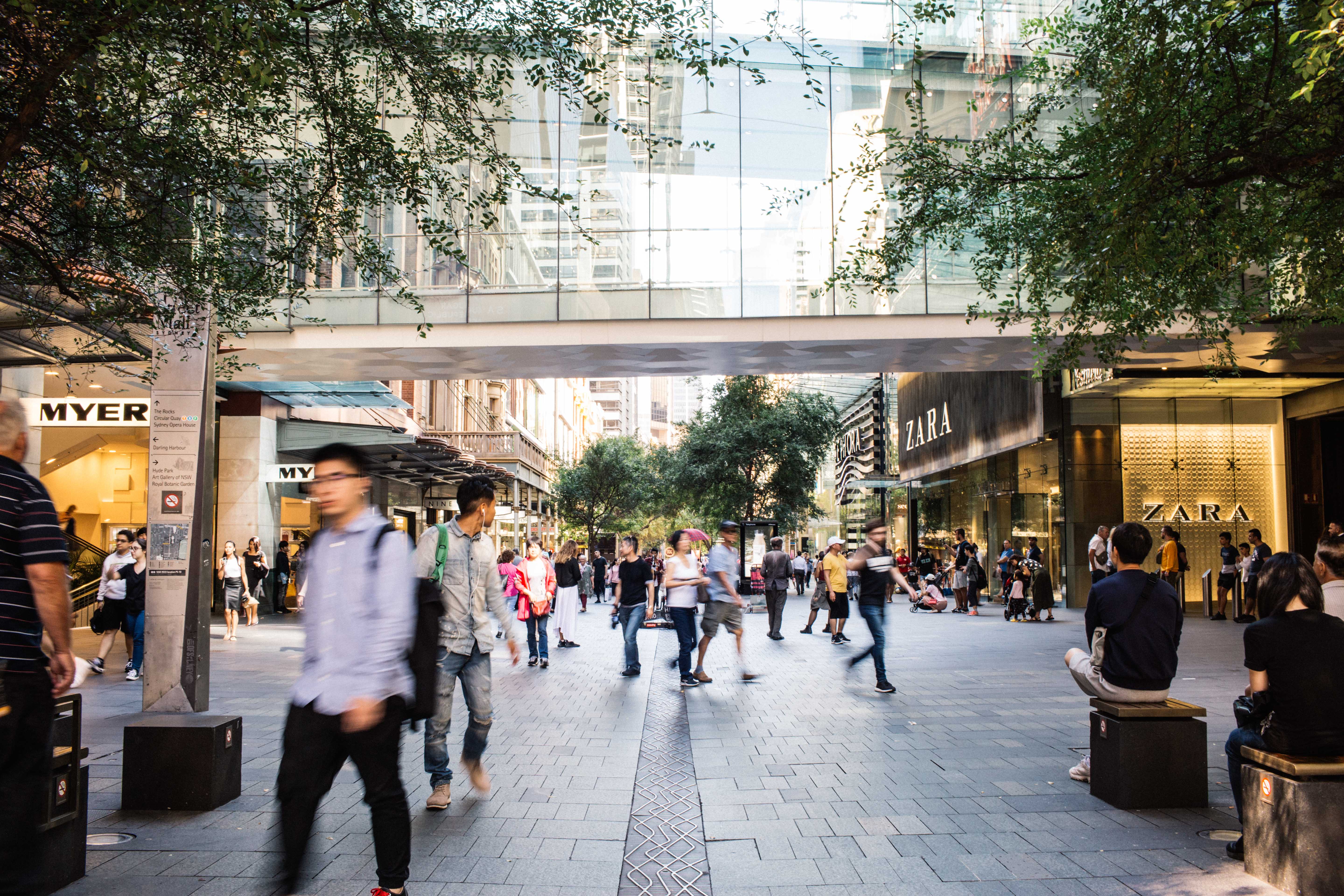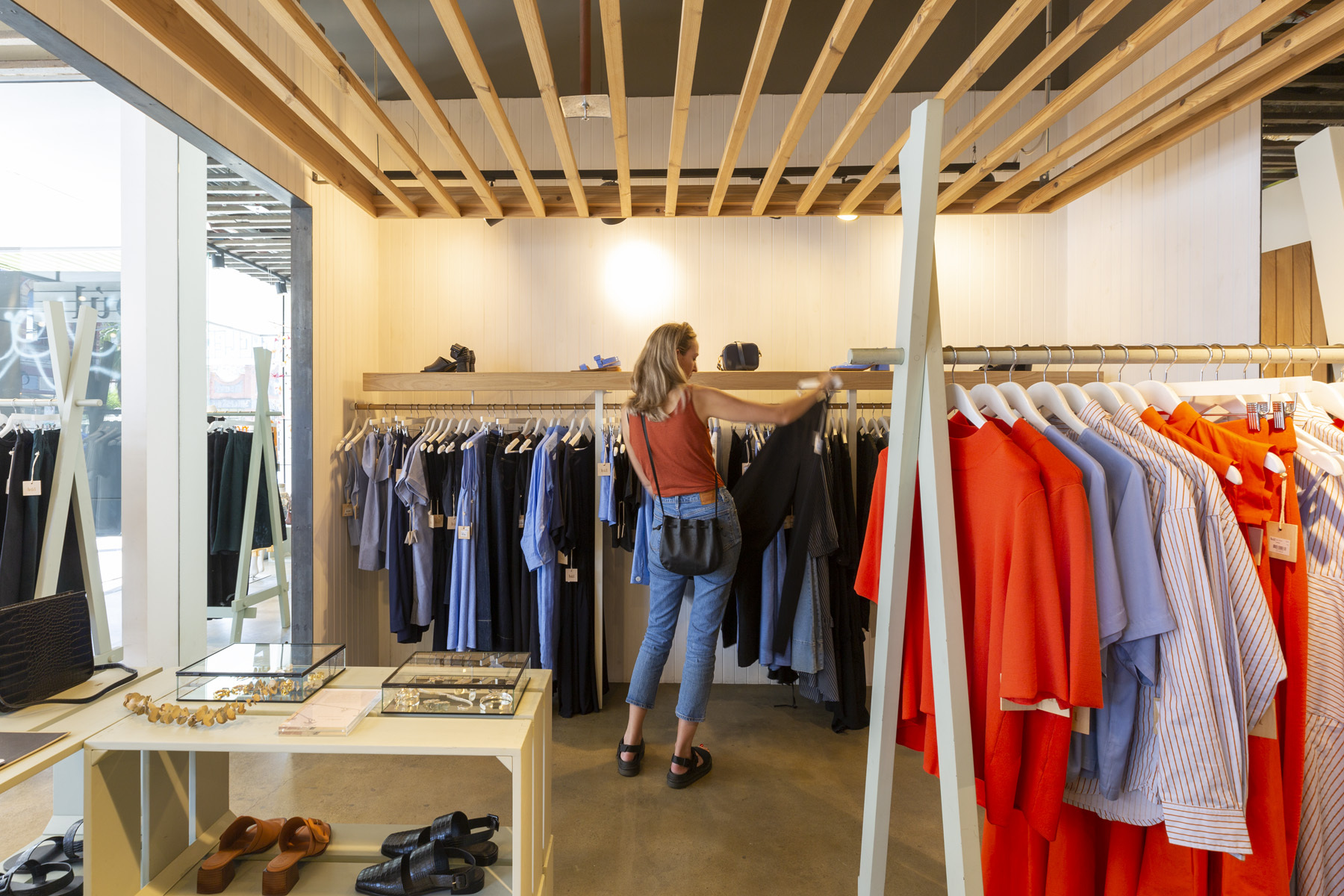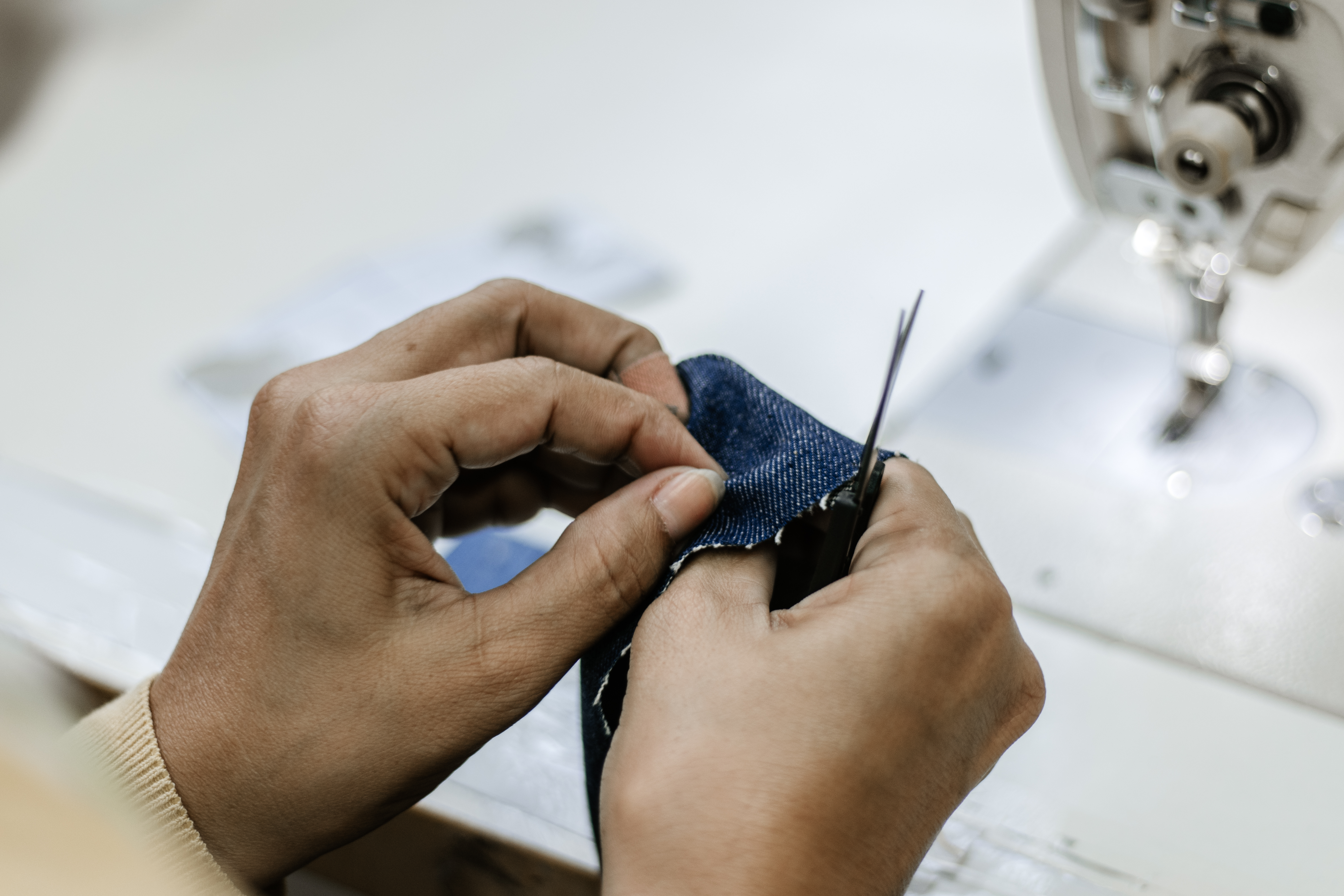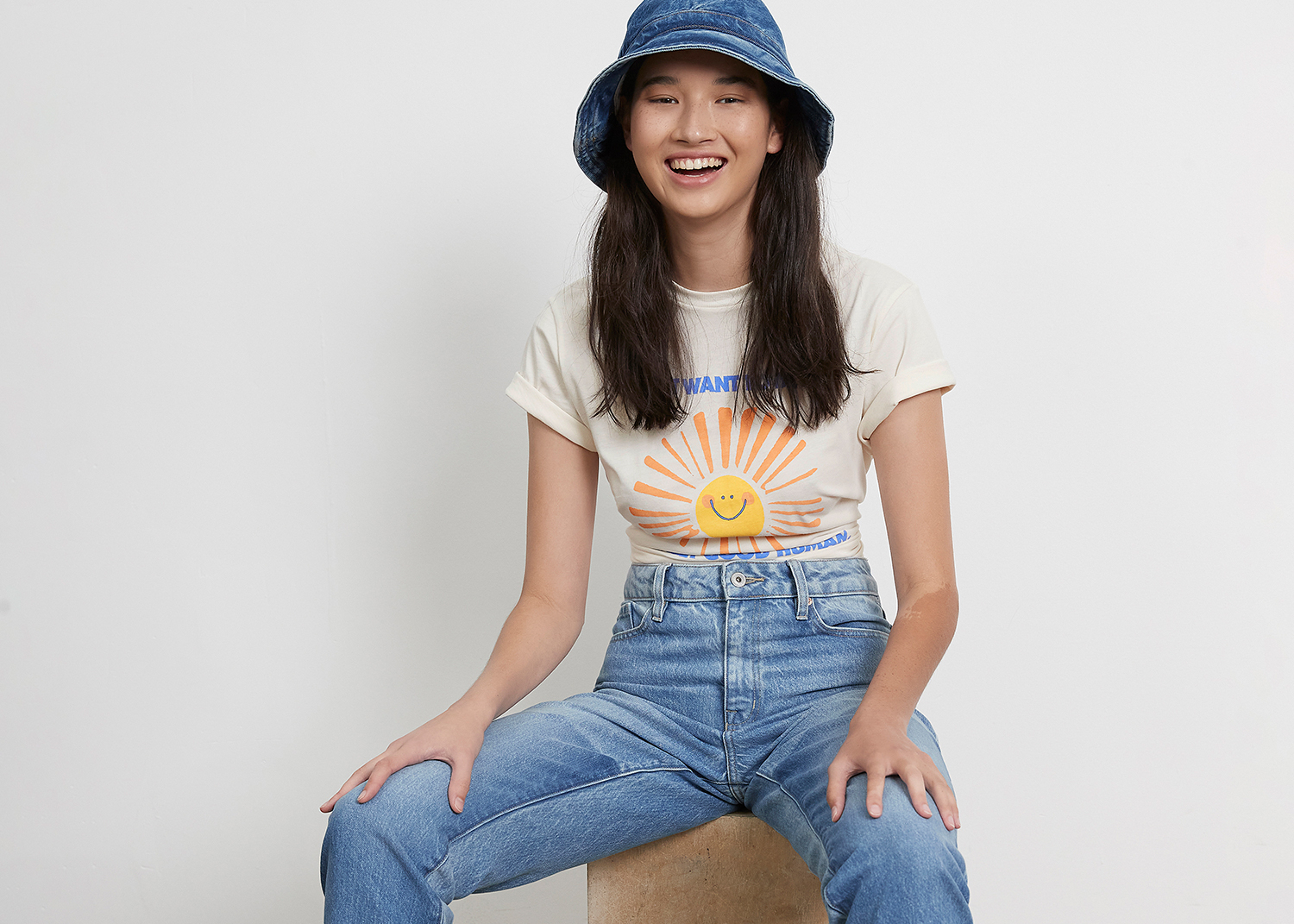Every year since 2013, Baptist World Aid Australia releases an Ethical Fashion Guide naming and shaming or celebrating clothing brands for their efforts to improve working conditions, their environmental impact and workers’ wages.
How Did Your Favourite Brands Score in This Year’s Ethical Fashion Guide?
The annual report assesses clothing companies on strict criteria, including living wages and sustainability. Melbourne brand Outland Denim achieved the highest rating (one of only four to do so), but high-street names Bardot, Quiksilver and Jeanswest were given Fs. Search the database to see where Gorman, DJs, H&M, Uniqlo and more are ranked.
This year saw a marked improvement for brands you might have written off as unethical – H&M and Zara, for example, received A grades alongside Country Road, Witchery, Nudie Jeans and Patagonia. At the bottom of the list, Bardot, Quiksilver and Jeanswest scored a miserable F.
The report surveyed 420 brands in total, grading them from A+ to F on sustainability and supply chain ethics. Twenty companies scored an A or above, but the international aid organisation says there’s plenty of room for improvement.

Baptist World Aid Australia’s ethical fashion coordinator Bonnie Graham is one of four people in the Australian team who worked on the Ethical Fashion Guide. She says it takes around 10 months to investigate the 98 companies responsible for the 420 brands surveyed this year.
“The fashion industry is a multibillion-dollar industry that has a huge potential to act as a catalyst for change through their purchasing relationships in the countries they operate in,” she tells Broadsheet.
“They have the ability to empower people to live their lives with dignity. Unfortunately for the majority of garment workers this isn’t their lived reality just yet, which is why this report exists.”
Shoppers can search through the online database to see how their go-to stores stacked up. Plus, you can also click on each brand for more information to see how they rated in the five assessment categories.
Seafolly, for example, scored a C overall, but its policies and governance is rated A+ and worker empowerment is ranked D. Cue, which also received a C rating, has better environmental sustainability ratings than it does supplier relationships and human rights. It’s especially helpful if you’re curious to know why B-scoring brands like Gorman, Uniqlo, Cotton On and David Jones didn’t score higher.

“We’ve found, over the past eight years of conducting this research, that there has been slow but continuous improvement, which we’re really pleased to report on, but overall we’re seeing the industry take small steps forward. There’s still a long way to go before ‘ethical and sustainable’ is synonymous with ‘fashion’,” says Graham.
“Companies are assessed on their publicly available information as well as anything they provide to us directly,” she explains. Companies with revenues over $50 million (the threshold for the NSW Modern Slavery act) are automatically included in the report. Smaller companies can nominate themselves to be included.
Outland Denim, which employs 160 people in its own managed factory in Cambodia and 16 people in Australia, is one of only four companies in this year’s report to score an A+ – alongside Etiko, Joyya and Mighty Good Basics.
Outland Denim’s founding CEO James Bartle tells Broadsheet he has mixed feelings about being top of the leaderboard. “It’s disappointing that only four companies got that rating,” he says. “But on the other side of the coin, I’m really proud that we have such a dedicated team and this is proof that there is a better way and it is possible to set a high standard in fashion and make money while doing it.
.jpg)
“I’m really passionate about our holistic model, and it becomes clearer every year that we can’t create genuine change unless we are holistic in our approach. It frustrates me that ‘living wages’ is even a thing. It frustrates me that there would be any company on the planet that would be willing to pay less than a living wage, yet so many aren’t reaching that standard.”
The fashion industry employs 50 million people worldwide. Graham tells us Baptist World Aid Australia sees potential for systemic change as more companies address safer working conditions, living wages, sustainability and animal welfare.
“As an international aid and development agency, the majority of work we do is in countries around the world that have really high levels of poverty, and our work is seeking to address those systemic injustices that perpetuate poverty,” she says.

“We’re seeing continual improvement on foundational company level measures, so things like codes of conduct, policies and tracing of supply chains. But when it comes to the tangible outcomes for garment workers – actually seeing change on the ground – these remain at low levels. Things like payment of living wages, remediation of issues and active support for collective bargaining still have a really long way to go.”
The good news is: 40 per cent of the companies previously listed improved their scores from 2019. “We assess all 98 companies on the exact same 46 questions covering 18 different indicators of the supply chain practice, and for each of those questions we have really strong validation and evidence requirements, so if companies aren’t willing to provide sufficient evidence for questions then that is going to be reflected in their scores,” explains Graham.
“In this particular reporting period, we were faced with so many hard decisions around remaining true to who we are and why we started the businesses,” says Bartle. “We’ve still got areas we want to be better in to have greater impact, but to be recognised in this report with an A+ rating was awesome. We’re pretty stoked.
“Industry-wide, it’s appalling that any leadership team in any brand or manufacturing facility could lie in bed straight knowing that not paying living wages makes people vulnerable and vulnerable people end up being trafficked and sold. We hear those stories first-hand from those that have been enslaved. It does make you angry.”

Living wages continues to be one of the most pressing concerns in the Ethical Fashion Guide, and as Graham tells Broadsheet, it’s also “one of the most powerful forces of change for garment workers”. Only 15 per cent of companies surveyed could demonstrate paying a living wage in their final stage factories. “When it comes to payment in all final stage factories that drops to just four per cent, which is a pretty devastating figure,” she says.
Low prices for garments has been a recurring issue – if brands continue to sell clothing at reduced prices, customers will accept and expect lower prices. “I think Outland is proving it’s possible,” says Bartle. “It’s proving it’s possible to have an aspirational beautiful product that people will get behind and support.
“Unfortunately, it does cost more to do this,” he says. “Scale obviously helps, but when someone buys an Outland Denim product, they’re not just buying the product, they’re buying education for the people that made it. They’re buying opportunities that [workers] wouldn’t have otherwise. We see the impact living wages has on people’s lives, independence, families and communities.
“Brands have a huge responsibility, especially in wanting to be more environmentally sustainable or socially responsible, and we’ve got to find a way to make it more accessible.”

The overall average is only 33.6 out of 100
For the first time, Baptist World Aid Australia published the score grade brackets so that consumers can see how companies rated out of 100. “The overall industry average this year is only 33.6 out of 100. Considering this is so low ... it is a reminder that there is huge room for improvement across the whole industry,” says Graham. “In saying that, the companies who are on an A+ are clearly doing a lot better than the majority of the industry, so we do applaud their efforts across ethics and sustainability.”
Interestingly, Australian and New Zealand companies are lagging behind international companies in their climate targets and strategies for emissions reduction. Graham says, “Only 29 per cent of companies surveyed could evidence a public climate target and decarbonisation pathways, but when we break that down by the location of the 25 companies that did evidence that only four of them are Australian or New Zealander, so we’d really like to see our local companies doing better on that indicator.”
Lead image: Outland Denim / Amy Higg Photography